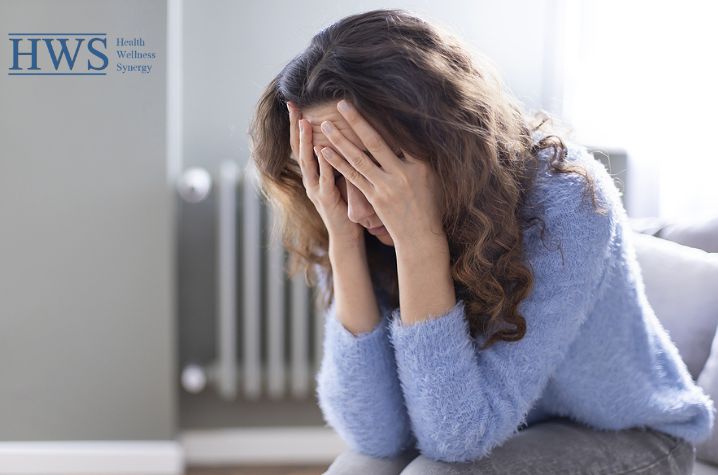
Depression is a complex mental health condition that affects millions of adults worldwide, including those in New Jersey. It can impact every aspect of a person’s life, from their emotional well-being to their physical health and relationships. Understanding depression, its types, causes, and treatment options is crucial for those struggling with this condition.
Depression is a mood disorder characterized by persistent feelings of sadness, hopelessness, and loss of interest in activities. It can affect how you think, feel, and handle daily activities. While it’s normal to feel sad or down from time to time, depression is different. It is a persistent condition that can significantly impair your ability to function.
There are several types of depression, including:

Depression can affect individuals in various ways, including:
Depression is one of the most common mental health disorders in the United States, affecting millions of adults each year. In New Jersey alone, thousands of adults struggle adults with depression, making it a significant public health concern.
Recognizing the signs and symptoms of depression is the first step toward seeking help. Common symptoms include:
The exact cause of depression is unknown, but it is believed to be a combination of genetic, biological, environmental, and psychological factors. Some common risk factors for depression include:
Diagnosing depression involves a thorough evaluation by a Mental Health Support. This may include a physical exam, psychological evaluation, and lab tests to rule out other medical conditions. A diagnosis of depression is made based on the presence of specific symptoms that persist for at least two weeks.

Treatment for depression often involves a combination of medication, psychotherapy, and lifestyle changes. Medications such as antidepressants can help regulate brain chemistry and improve symptoms. Psychotherapy, including cognitive-behavioral therapy (CBT) and interpersonal therapy, can help individuals develop coping strategies and improve their outlook on life.
While it may not be possible to prevent depression entirely, there are steps you can take to reduce your risk. This includes maintaining a healthy lifestyle, seeking support from friends and family, managing stress, and seeking professional help if you experience symptoms of depression. Contact a mental health professional for guidance. Thank you for taking a step toward mental wellness.
The prognosis for Advanced Depression depending on the individual and the severity of the condition. With proper treatment, many people with depression can experience significant improvement in their symptoms and quality of life. It’s important to seek help early and follow your treatment plan to achieve the best possible outcome.
Living with depression can be challenging, but it’s important to remember that you’re not alone. Building a support network, engaging in self-care activities, and sticking to your treatment plan can help you manage your symptoms and live a fulfilling life despite depression.
In conclusion, depression is a common and treatable mental health condition that affects millions of adults in New Jersey and beyond. Seeking help from a qualified mental health professional is the first step toward managing your symptoms and improving your quality of life. If you or someone you know is struggling with depression, don’t hesitate to reach out for help.
Schedule a consultation! Provide your contact information below and we’ll get back to you as soon as we can.
Depression comes in many forms, including:
Major depressive disorder (clinical depression)
Persistent depressive disorder (chronic depression lasting an extended period)
Bipolar disorder (episodes of depression and mania, including mood swings)
Postpartum depression (after childbirth)
Seasonal Affective Disorder (SAD) (linked to seasonal changes)
Each form of depression has unique symptoms but shares common signs like loss of interest, difficulty sleeping, and depressive symptoms that interfere with daily life.
At our mental health treatment center, we offer evidence-based treatments, including:
Personalized treatment plans (therapy, medication, lifestyle changes)
Antidepressant medications (for chemical imbalances)
Residential treatment (intensive care for severe cases)
Talk therapy & support network (CBT, group therapy)
Innovative treatments like TMS and Ketamine Treatment NJ
Common signs of major depression include:
Persistent sadness or hopelessness
Loss of interest in activities
Fatigue, difficulty sleeping, or oversleeping
Suicidal thoughts (seek immediate help if experiencing these)
If these symptoms last for weeks, consult a health care provider for diagnosis.
We take a personalized approach, tailoring treatment services to each patient’s needs. Our mental health professionals combine therapy, medication, and lifestyle changes for long-term recovery
Yes, many of our treatment programs are covered by insurance. Contact your insurance provider to verify benefits for mental health care.
For those with treatment-resistant mental health disorders, Ketamine Treatment NJ offers rapid relief from depressive symptoms, often working when traditional antidepressant medications fail.
Our Residential Treatment provides 24/7 care in a supportive environment, ideal for severe mood disorders or when outpatient therapy isn’t enough.
Yes! Alongside therapy and medication, healthy lifestyle changes (exercise, diet, sleep hygiene) can significantly improve mental illness symptoms.
Look for licensed therapists, psychiatrists, or a mental health treatment center specializing in personalized treatment plans for major depressive disorder and other mental health conditions.
We use cookies to improve your experience on our site. By using our site, you consent to cookies.
Manage your cookie preferences below:
Essential cookies enable basic functions and are necessary for the proper function of the website.
Google reCAPTCHA helps protect websites from spam and abuse by verifying user interactions through challenges.
Google Tag Manager simplifies the management of marketing tags on your website without code changes.
You can find more information in our Cookie Policy and Privacy Policy.